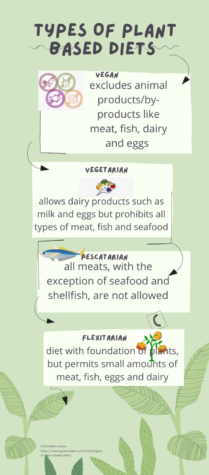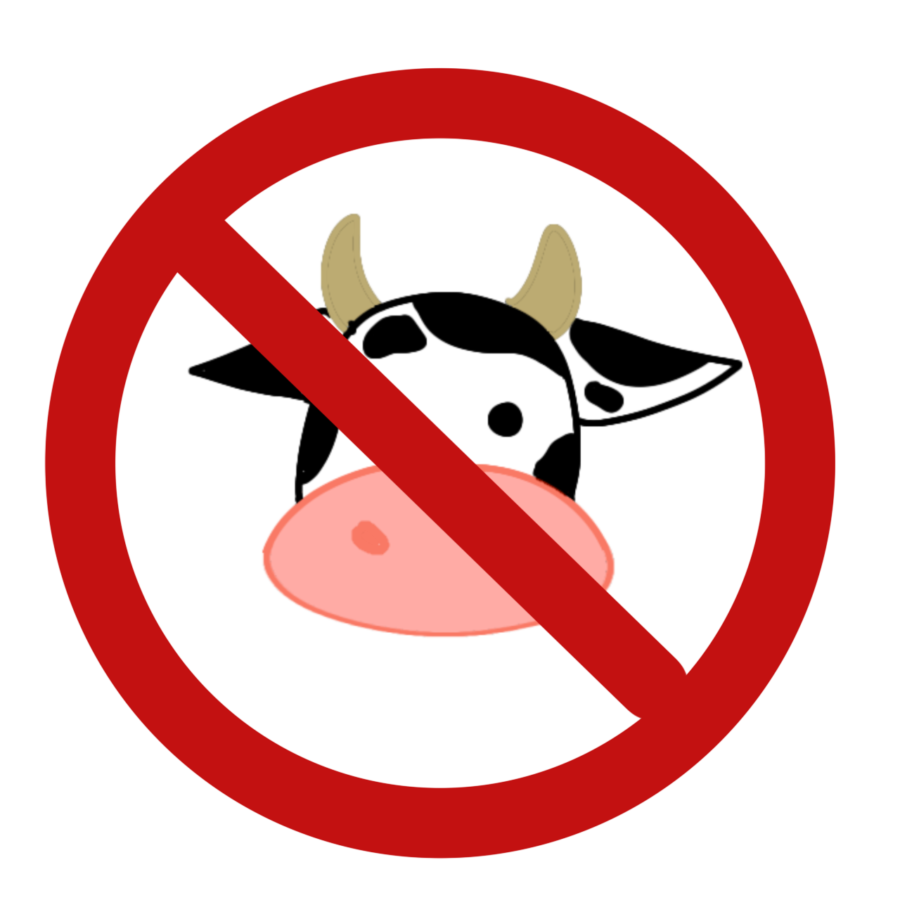Society embraces plant-based diets
A growing number of people are reducing their meat intake or getting rid of it entirely. The rise of interest in plant-based diets is a result of more meat-free options made available in grocery stores and restaurants. A reduction in meat consumption also plays a part in abating global warming.
December 4, 2021
Strolling through the aisle at your local grocery store, you might come across a package of Beyond Meat patties or wrapped Tofurkey. McDonalds recently introduced the McPlant, a meatless burger made of rice and pea protein. In the summer, Chipotle advertised meat-free chorizo. It’s official-society is embracing plant based diets.
Having a plant-based diet means the majority of your food intake is from legumes, beans, fruits and other plants.
In 2020, the number of Americans eating plant-based foods surpassed 9.7 million. According to the Washington Post, plant-based diets surged during the pandemic as people countered weight gain and boredom.
Spanish teacher Jason Colchao has been vegetarian for almost a year. “My entire life I’ve known I wanted to be a vegetarian and I would follow it on and off,” Sr. Colchao said. “What really got me into it nowadays is health reasons and sustainability, just because the practices we do here in the U.S. is not sustainable to maintain meat eaters.”
As the world faces severe climate change devastation, people make their impact on the environment by going meatless. Livestock (cows, for instance) contribute to 51 percent of greenhouse gases. One cow will release about 220 pounds of methane annually, vigorously warming the atmosphere. The less people eat cows, the fewer cows there will be due to their breeding reduction and,consequently, there will be less methane emitted.
As published in Medical News Today, a common misconception about sticking to meatless foods is a deficit in protein intake. But, many vegetarian foods, including nuts, beans and tofu, are full of protein and it just requires some research to find what works best for you.
For some students, they have been eating plant based diets forever. Junior Maya Ramamurthi is Hindu-beef is prohibited- and a vegetarian.
“As a younger kid, I never understood the idea of eating another animal that moves and breathes and has kids,” Ramamurthi said. Ramamurthi’s family also has a history of poor heart health so avoiding red meat is conducive to good health.
Freshman Praneel Suvarna has also been a vegetarian since birth. “ I’ve just never really eaten meat or anything like that, so I think it’s more of a cultural thing for me,” Suvarna said. “I’m Indian and there are a lot of Indian plates that are vegetarian so I eat a lot of Indian food.”
Three years ago, freshman Naima Aubry dipped her toes in developing a plant-based diet. “I first became pescetarian and then I went vegetarian,” Aubry said. “I watched the documentary called Forks Over Knives, which explained all the issues happening in our world right now so that really made me want to go vegan.”
Aubry noticed physical/mental changes after altering her diet. “ I was very unhealthy before, I had high cholesterol. But after taking a blood test, I noticed that my health improved,” Aubry said. “I feel more positive, like, when I wake up in the mornings, I have a better mindset.”
Although meatless products are offered in restaurants and stores, inconveniences are still faced.
“When you go over to a friend’s house or some sort of social event, you don’t want to be that person that’s like, oh, wait, I have a dietary restriction,” Sr. Colchao said. “ I don’t break my diet for other people so I find or request vegetarian options as nonchalantly as possible.”
For those who are interested in reducing their meat consumption and bettering their overall nutrition, these students recommend not to immediately reject meat. “Don’t rush into it because it can be really difficult to adjust and you’ll regret it,” Aubry said.


